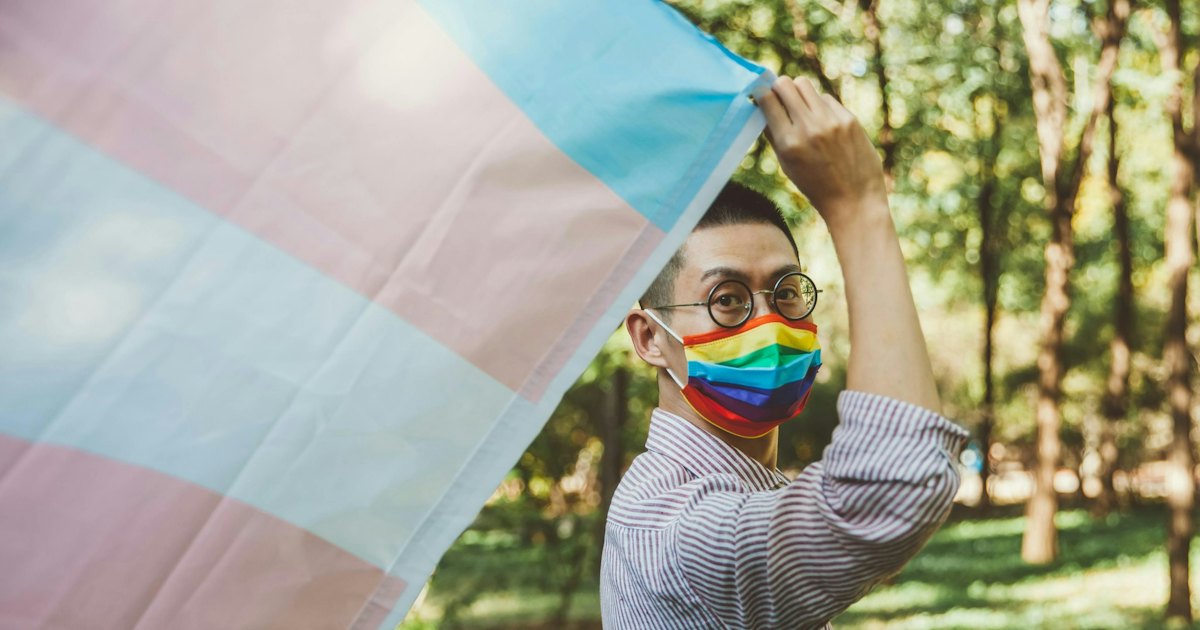
In May 2017, Taiwan’s Constitutional Court ruled that prohibiting same-sex marriage was unconstitutional, and gave a two-year period to amend the civil code to legalize the practice. On May 17, 2019, the Legislative Yuan passed such legislation, but many issues remain unsettled for LGBTQ rights. For example, adoption rights are left uncodified, much to the chagrin of young queer Taiwanese people seeking a way to start a family. Moreover, despite perceptions of tolerance in Taiwan, transgender people received little attention for their rights, especially in terms of public tolerance towards the country’s transgender population compared to that for gays and lesbians.
Transgender people obtained a huge legal victory in September 2021, when the highest court ruled that proof of gender reassignment surgery was unnecessary in order to obtain a legal gender change. Given that not every transgender person has the desire or ability to undergo reassignment surgery, pro-LGBTQ advocates viewed the ruling as a political victory for a poorly represented minority group. Not every Taiwanese individual feels the same, though. Civilian-led organizations, such as NoSelfID Taiwan, have formed in opposition to the ruling that removed gender reassignment surgery requirements. One founder of this group is quoted as saying, “trans ideology [is] the extension of rape culture.” Clearly, there is a great disconnect between social conservatives across Taiwan and those who feel that supporting the LGBTQ community is what separates their democracy from their authoritarian neighbors, such as the China (People’s Republic of China) or North Korea (The Democratic People’s Republic of Korea).
To gauge support for different members of the LGBTQ community in Taiwan and whether the proximity of contact mattered, we surveyed 1,213 Taiwanese individuals via web survey conducted by Macromill Embrain, from December 1-11, using quota sampling for gender, age, and geographic region. We randomly assigned respondents to one of the following four variations of a question on a five-point Likert scale (very uncomfortable to very comfortable):
Version 1: “How comfortable would you feel with a homosexual person living in your community?”
Version 2: “How comfortable would you feel with a homosexual person being your neighbor?”
Version 3: “How comfortable would you feel with a transgender person living in your community?”
Version 4: “How comfortable would you feel with a transgender person being your neighbor?”
For simplicity, we reduced responses to a three-point scale below. Two patterns emerge. First, we see a marginal difference in how respondents answered when the focus was on the homosexual versus the transgender community, 3.58% when the focus is the community and only 2.52% when on neighbors, with slightly lower comfort with the transgender community, suggesting a public that may not explicitly differentiate between the two. Second, for both groups, we see lower rates of comfort when the focus shifts from one’s community to be being a neighbor (6.6% and 5.54% respectively), suggesting that proximity does influence perceptions, consistent with previous work on tolerance and proximity in South Korea.
Dividing the respondents into different age brackets makes social divides in Taiwan abundantly clear. Those aged 18-29 were expectedly the most accepting age demographic, with 65% feeling comfortable with a homosexual person in their community, while only 16% above 60 years old answered the same. This appears to be anomalous, though, as 44.44% of the oldest age bracket reported feeling comfortable with a homosexual as their neighbor. Other than this, though, the previous trend of comfort being determined by proximity is mostly bolstered when looking at data by age group, although more dramatic for some groups than others. A particularly sharp drop in comfort in regards to homosexuals came from those aged 40-49, where 47.83% reported being comfortable with a homosexual in their community, but only 30.49% as their neighbor.
Political affiliation also demonstrates a sharp difference in LGBTQ acceptance among Taiwanese people. Focusing on supporters of the three largest parties—the Democratic Progressive Party (DPP), the Kuomintang (KMT) and the Taiwan People’s Party (TPP), we unsurprisingly find DPP supporters stating the most comfort across all four versions of the question. Oddly, the strongest majority (64.14%) felt the most comfortable with transgender people in their communities. Conversely, only 30.43% and 21.4% of respondents who identified with the KMT were comfortable with a homosexual person as their neighbor and in their community respectively. Those supportive of the TPP seemed to be more mixed than their political opponents, with 46% being comfortable with a homosexual in their community.
Religious and conservative culture remains a barrier to widespread acceptance of LGBTQ people in Taiwan, however great strides have been made with the assistance of grassroots organizing and support, albeit sometimes tepid, from the ruling party DPP. LGBTQ advocates in Taiwan seeking to boost public support might look towards a strategy of linking Taiwanese identity with progressive social ideology. Incorporating how Taiwan differs from China as a way to push a pro-LGBTQ agenda could prove to be fruitful, given that Taiwanese people largely reject unification with China, a country that is falling substantially behind on LGBTQ rights and recognition.
TNL Editor: Kim Chan (@thenewslensintl)



